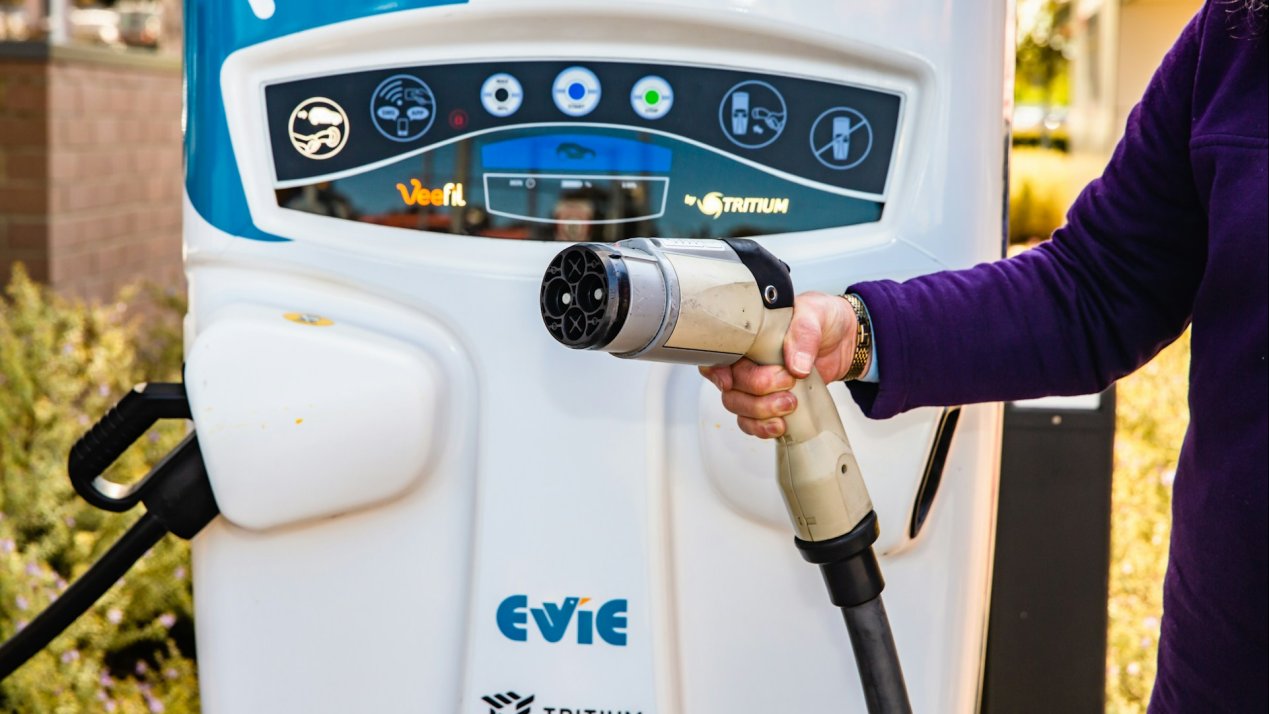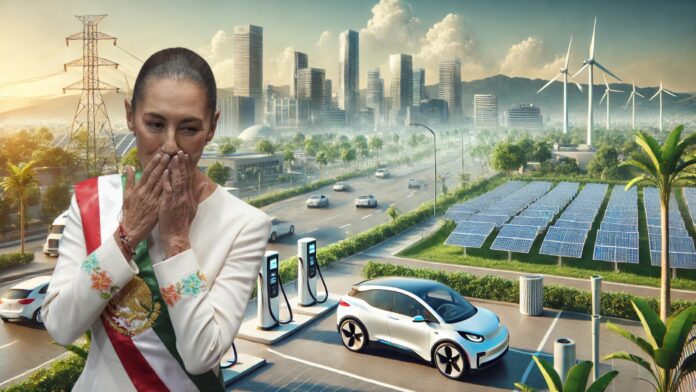Mexico has been gradually positioning itself as a significant player in the electric vehicle (EV) industry. With its robust manufacturing base and proximity to the United States, the country is set to play a crucial role in the EV supply chain.
Under the leadership of newly elected President Claudia Sheinbaum, Mexico is poised to accelerate its transition to sustainable mobility and renewable energy. Her administration’s policies on EVs and alternative energy could be transformative for both the country and the region.
Mexico’s Growing EV Market
Mexico’s automotive industry, historically one of the world’s largest, has been dominated by the production of internal combustion engine (ICE) vehicles. However, with global trends moving towards electrification, many major manufacturers operating in Mexico, including Tesla, General Motors, BMW, and Volkswagen, have already begun shifting their focus to EVs.
In recent years, Mexico has seen a notable increase in EV production. BMW’s plant in San Luis Potosí started production of fully electric vehicles in 2021, and Tesla is building a major facility in Nuevo León, which will be one of the largest EV factories in the world. General Motors also announced plans to invest in its Ramos Arizpe plant to produce electric models.
This shift is partly driven by strong demand in North America, thanks to incentives in the U.S. such as tax credits under the Inflation Reduction Act (IRA). As the U.S. moves towards electrification, Mexico, as a primary manufacturing hub, stands to benefit significantly by producing EVs and components that qualify for North American supply chain incentives.
Sheinbaum’s Vision for EVs and Clean Energy
Claudia Sheinbaum’s rise to the presidency marks a new chapter for Mexico’s commitment to clean energy and sustainability. Having a background in environmental science, Sheinbaum has been a vocal advocate for renewable energy, sustainable mobility, and climate action throughout her career.
Her administration is expected to focus on three key areas:
- Incentivizing EV Production and Adoption: President Sheinbaum aims to continue and expand policies that encourage EV manufacturing, aiming to make Mexico a leader in EV exports. This includes providing tax breaks for EV manufacturers, supporting the development of a domestic supply chain for EV batteries, and fostering research and development in green technologies.Sheinbaum is also keen to improve EV adoption within Mexico. Although sales of electric cars in the country remain relatively low compared to traditional vehicles, her government is planning to roll out incentives for EV buyers, such as subsidies and tax benefits. There are also proposals to build more public EV charging stations, especially in Mexico City and major industrial corridors, to address the infrastructure gaps that hinder EV uptake.
- Expansion of Renewable Energy: A major component of Sheinbaum’s policy platform is the shift from fossil fuels to renewable energy sources. Mexico has abundant natural resources for solar and wind energy, particularly in northern and southern regions. The new government aims to increase the share of renewables in the national energy grid, making electricity cheaper and cleaner. In line with this, new legislation could mandate that EVs in Mexico rely more on clean energy sources, tying together the country’s green mobility and renewable energy goals.
- Carbon Reduction and Sustainability Initiatives: Under Sheinbaum, Mexico is expected to align with international climate goals, including reducing its carbon footprint. Part of this strategy involves transitioning to sustainable public transportation. Mexico City, where Sheinbaum served as mayor, already has a growing fleet of electric buses, and she plans to replicate this model in other parts of the country. Investment in electric buses, metro expansions, and green infrastructure is part of her broader goal to create smart, sustainable cities.
Challenges Ahead
Despite the optimism, the road to EV dominance in Mexico is not without challenges. Some of the main hurdles include:
- Limited Charging Infrastructure: EV infrastructure remains underdeveloped in many parts of Mexico, particularly outside major cities. For the average consumer, range anxiety is a concern, and solving this issue requires significant investments in nationwide charging networks.
- Affordability and Access: Electric vehicles are still expensive for most Mexican consumers. While subsidies and tax incentives are planned, it may take time before EVs become a viable option for the mass market.
- Energy Grid Dependence: Although Mexico has ambitious plans for renewable energy, much of the country’s current grid is still powered by fossil fuels. Ensuring that the electricity used by EVs is clean will be vital to achieving true sustainability.

The Future of Mexico’s EV Industry
Mexico’s strategic location, automotive expertise, and government support position it well to become a key player in the global EV market. President Claudia Sheinbaum’s policies on sustainable energy and electric vehicles could accelerate the country’s transition towards a greener economy. Her administration’s focus on EV infrastructure, clean energy, and carbon reduction aligns with global climate goals, creating opportunities for Mexico to solidify its role in the future of electric mobility.
The next few years will be crucial as the country navigates the challenges of infrastructure, affordability, and grid sustainability. However, with the right investments and policies, Mexico has the potential to emerge as a leader in the EV revolution, benefiting not just the local economy but also contributing to global efforts to combat climate change.
MexicoBusiness.com: Mexico Requires US$1.7 Billion Annual EV Charging Investment

Coach J.P. Money is the founder of Coach J.P. Money. He is an expert in Coaching and Money! He is also a writer, global citizen eco-activist, visionary, musician, artist, entertainer, businessman, investor, life coach, and syndicated columnist. He is also known as the music artist “Johnny Punish”; a name given to him by a bandmate during his Punk Rock years fronting the rogue underground punk band “Twisted Nixon”
His Expat home base since the late 1990s is Mexico. J.P. Money, aka Charles Bivona Jr., was educated at the University of Nevada Las Vegas (1980-81) and California State University Fullerton (1981-1984) with studies in accounting, finance and business. He bought is first real estate income property at 17 years old with no money down. He has been debt-free and building wealth since 1998.
Before the “internets” had been invented, he also owned and ran (5) national newspapers in the United States of America from 1987-1998. In addition, he created and ran the important online media sites; HireVeterans.com (2004-2020) and VT Foreign Policy (2004-2023).
J.P. Money is married to Queen Albertina from Sinaloa Mexico (1985). Together they have 3 adult children and 7 grandkids. They live in Baja Mexico at the home they built together out of plastic bags and dirt (Super Adobe). Now they share their epic artistic piece with the world as a unique luxury BnB called “Hacienda Eco-Domes“.
Read J.P. Money’s Full Bio at PunishStudios.com >>>












